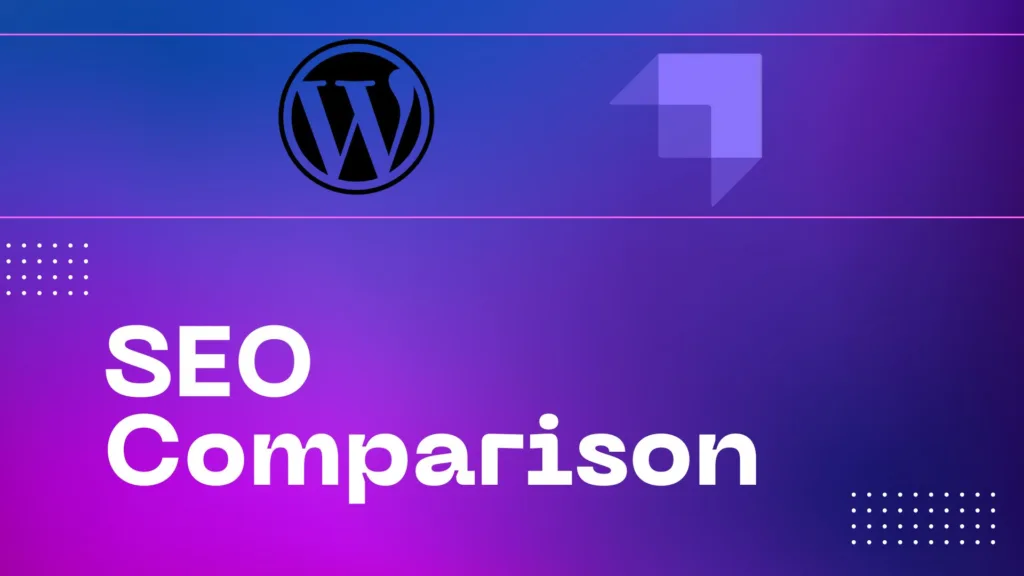Share This Article
In the ever-evolving landscape of website development, selecting the right Content Management System (CMS) is crucial for achieving your digital objectives. At Extern Labs, a leading IT company specializing in website development, we understand the importance of choosing the ideal platform to meet our clients’ diverse needs. In this article, we delve into a comparative analysis of two prominent CMS options: WordPress and Strapi.
WordPress: Powering Websites with Simplicity and Flexibility
For years, WordPress has been a cornerstone of the web development industry, empowering millions of websites worldwide. At Extern Labs, we leverage the robust features and user-friendly interface of WordPress to create stunning websites that resonate with our clients’ brands. WordPress is renowned for its:
Ease of Use
With its intuitive dashboard and extensive plugin ecosystem, WordPress simplifies content management and customization, enabling clients to update their websites effortlessly.
Vast Community Support
As an open-source platform, WordPress benefits from a vibrant community of developers and enthusiasts who contribute themes, plugins, and solutions, ensuring continuous innovation and support.
Scalability
From small blogs to enterprise-level websites, WordPress scales seamlessly, accommodating diverse business requirements and growing traffic demands.
Strapi: Embracing Headless CMS for Unprecedented Flexibility
In recent years, headless CMS solutions like Strapi have emerged as compelling alternatives, offering unparalleled flexibility and customization options for modern web applications. At Extern Labs, we recognize the transformative potential of Strapi in empowering developers and content creators alike.
Decoupled Architecture
By decoupling the content management interface from the frontend presentation layer, Strapi enables developers to build dynamic, interactive web experiences with ease, leveraging the latest technologies such as GraphQL.
Customization and Extensibility
With Strapi’s modular architecture and customizable content types, developers have the freedom to define unique data structures and APIs tailored to specific project requirements, fostering innovation and creativity.
Security and Performance
Strapi prioritizes security and performance, offering robust authentication mechanisms, role-based access control, and optimization features to ensure reliable and efficient operation in production environments.
SEO Comparison: WordPress vs. Strapi

WordPress, with its extensive plugin ecosystem and user-friendly interface, offers robust SEO capabilities. Plugins like Yoast SEO and All in One SEO Pack simplify on-page optimization, meta tag management, and XML sitemap generation. However, WordPress websites may encounter performance issues and slower load times due to plugin overload. Additionally, security vulnerabilities can arise if the platform is not regularly updated and maintained.
Strapi’s headless architecture prioritizes performance and flexibility, making it conducive to SEO. Developers can design lightweight, fast-loading websites with custom data structures and API endpoints. While Strapi offers essential SEO features out of the box, advanced functionality may require custom development or integration with third-party services. The platform’s learning curve may be steeper for non-technical users compared to WordPress, but its support for modern technologies like GraphQL enhances user experience and search engine crawlability.
Development Cost Comparison: WordPress vs. Strapi
Cost of WordPress Development:
- WordPress itself is free to use, as it is open-source software.
- Costs may include domain registration, web hosting, premium themes, and plugins for added functionality.
- Custom development for unique features or extensive customization can incur additional expenses, especially when hiring professional developers or agencies.
Cost of Strapi Development
- Strapi is also open-source and free to use, offering cost savings on software licensing.
- Similar to WordPress, expenses may arise from domain registration, hosting services, and optional premium themes or plugins for enhanced functionality.
- Custom development and integrations with other services may incur costs, particularly for complex projects requiring specialized expertise in JavaScript and backend development.
In summary, while both WordPress and Strapi offer distinct advantages and considerations in terms of SEO capabilities and development costs, the choice ultimately depends on the specific requirements and objectives of your project. At Extern Labs, we strive to provide informed recommendations and tailored solutions that empower our clients to achieve their digital goals effectively and efficiently.
Choosing the Right CMS for Your Project
When deciding between WordPress and Strapi for your website development project, it’s essential to consider factors such as project scope, scalability, customization requirements, and long-term objectives. At Extern Labs, our team of experienced developers collaborates closely with clients to assess their needs and recommend the most suitable CMS solution that aligns with their vision and goals.
In conclusion, the choice between WordPress and Strapi ultimately depends on your specific project requirements and strategic objectives.
For inquiries about our website development services or to discuss your project needs, feel free to contact us at Extern Labs. Together, let’s embark on a journey of digital transformation and innovation.

